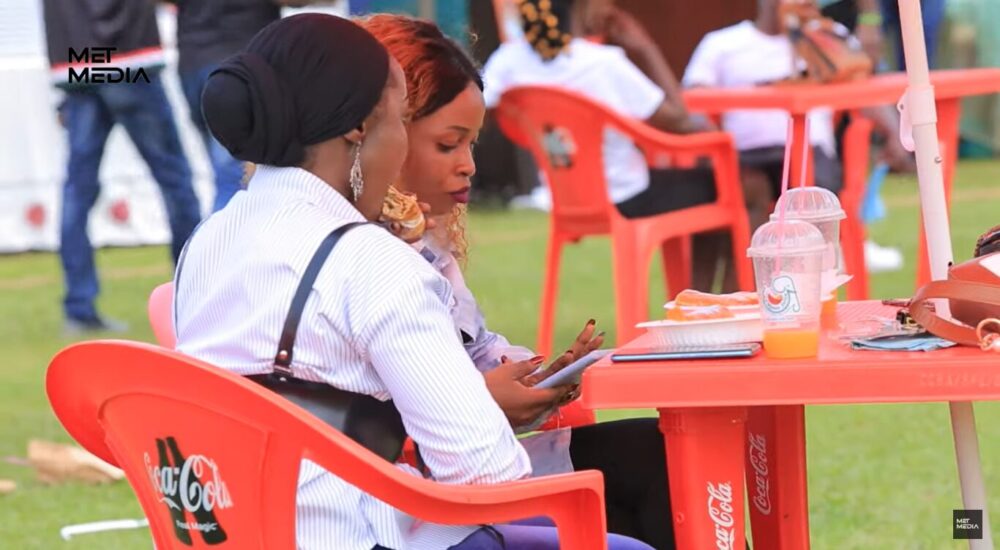Uganda, often called the "Pearl of Africa," is one of the most diverse and beautiful…
10 Travel Tips When Going on an African Safari
10 Travel Tips When Going on an African Safari
Because, as they say, “It’s better to be safe, than sorry.” We at Monumnetal Expeditions and Safaris are all too familiar with this. We want to give you some of our best safari travel advice because of this. They will assist you in organizing a safari that is free of accidents.
1. Insurance for Travel
Get travel insurance as soon as you have confirmed your itinerary. Choose an insurance that includes coverage for emergency evacuation, medical illness, cancellation, and related hospital treatments. Make sure you have your policy number and details with you, as well as your emergency phone numbers for travel insurance.
2. Individual Security
Common sense plays a major role in your personal safety and security. Therefore, exercise the same prudence whilst on safari in Africa as you would in any large metropolis back home:
Avoid carrying significant amounts of cash (for additional information on ATMs, credit cards, and cash, see below).
Keep your cash in a money pouch tucked under your shirt, together with your passport and other travel documents. Store it in your knapsack or camera bag, which should always be visible, or keep it out of sight.
When you are walking in crowded places (such as airports, marketplaces, restaurants, and the street), pay special attention to your personal belongings.
Never go out on your own at night.
When leaving, keep your cash, plane tickets, and passport in a secure location, such as the hotel or lodge safe.
Keep things that could be tempted out of sight, such as phones, cameras, wallet pouches, and handbags. Either turn them in to management or lock them in the room safe.
Leave your jewelery at home if you can.
3. ATMs, credit cards, and cash
Keep at least one credit card with you along with cash, preferably US dollars for most countries and Rand for South Africa. Traveler’s checks are no longer often recognized in Tanzania and other African nations. The most extensively used currency is still the US dollar, which is followed by the euro and sterling.
One of the most crucial travel tips has to do with money. Each participant should bring at least $150 to $250 in cash from home each week. Visas obtained upon arrival require precise cash payment. Because they may be counterfeit, certain nations do not accept US dollars issued prior to 2000.
Watch out for money changers on the street! Before transferring any of your personal funds, make careful to count each note individually to ensure that the entire amount is present. Make sure you keep an eye on the pile once it has been counted. Switching bundles and then realizing that the new bundle is primarily newspaper is an old technique. They won’t take offense if the money traders are honest!
It is against the law to enter or exit most African nations with anything other than small quantities of local cash due to their strict exchange control laws. Don’t convert too much cash into local currency at once to prevent issues. The amount of foreign cash that can be imported is often unrestricted.
Debit and Credit Cards
International credit cards are accepted at the majority of establishments. When you can, use them as a form of payment. It pays sense to have multiple credit card brands on hand because not all establishments or lodging facilities accept all of them. The drawback is that credit card issuers frequently impose a foreign transaction fee as a precaution and do not provide the best exchange rates available!
In Africa, credit cards come with a fee, often as high as 5% and sometimes much higher! Before you give your credit card, make sure to inquire about any surcharges.
Travel Tip: The majority of credit card companies and banks recommend that you notify them before to your international trip. This is to prevent your card from being suspended by their credit card monitoring systems in the event that they find any odd purchases. Your card will be suspended for such purchases, and you will face humiliating repercussions.
Additionally, when traveling, exercise caution when disclosing your credit card information. Additionally, when paying your bill, keep your card in plain sight.
ATMs
Only local money is available at ATMs in Africa, and you might require an international PIN code. Make important to inquire about how this should operate with your own bank or credit card institution. Not every kind of credit card can be used at every ATM in Africa. In Africa, VISA offers the best coverage. Use an ATM at a bank so you may go in and retrieve your card if it is held for any reason. When on safari, avoid using ATMs as your primary source of money!
4. Current Electricity
Like most of Europe, the UK, Australia, and New Zealand, as well as almost all Asian nations and India, electricity in Africa is 220-240V/50Hz AC. Those of you from North America need to bring a converter and an adaptor for the correct plug configuration.
Plugs/Types: two-prong round (unearthed) C (European)
D (Old British plug): tiny, spherical, three-prong
Round, two-prong F (Schuko plug) with two earth connections
G (UK plug) is a rectangular, three-prong
The three-prong round M (South African plug) is huge.
The most common plug socket types in Africa are Type M (South Africa’s standard), Type D (Namibia’s standard), and Type G (the UK standard). Type C and Type F plug sockets are available in some nations, nevertheless (see table below). International wall outlets that accept a variety of two-prong and three-prong plugs are available at several hotels. Type A and Type B plugs are used in North America and Japan, while Type I plugs are used in Australia. An adapter plug will be needed for everything!
Type of Plug/Country: Botswana-D & G
Rwanda: C
Kenya: G
D & M, South Africa
Malawi: G
Swaziland: M
Africa’s C, F, and M
Tanzania: D & G
Namibia: D & M
Zambia: C, D, and G
Uganda: G
Zimbabwe: D & G
While not every safari camp or lodge has electrical outlets in the tents or rooms, they always offer a location where you can charge the batteries in your phone, iPod, or camera.
Make sure to ask the manager when you get there because some camps only operate their generator during specific hours of the day.
You can charge your camera or video batteries while on the road thanks to the inverters that several mobile safari operators have in their cars.
5. Internet and Mobile (Cell) Phone Access
Mobile (cell) phone service (and even Wi-Fi) is definitely more common throughout Africa, but not in some of the more distant safari areas (thankfully). In general, communications in Africa are not what you are used to at home.
Travel Tip: Make sure your phone is compatible with African networks and that it is registered for international roaming by contacting your service provider. The majority run on 900 MHz GSM digital networks (and few 3G networks as well). It will function perfectly if your phone is a dual or tri-band GSM phone.![]()
Wi-Fi is increasingly being provided at safari camps and lodges; some are connected by satellite, while others are an extension of the nation’s communications network. Before you depart, find out which camps or lodges provide WiFi by speaking with your Africa Travel Specialist. WiFi is preferable to a cell phone. Steer clear of outrageous international roaming fees!
The more isolated safari camps—and mobile camps in particular—do not have access to all of the standard forms of communication, including phone, fax, internet, and email. Sometimes the only way to communicate is through an HF radio.
6. Water
Sip water from a bottle. The bottled water that is easily accessible at all the campgrounds and hotels is always safe to drink. Always have a bottle of water with you, even while moving between campgrounds. Ask the staff if you have any concerns about the water quality where you are staying. Additionally, do not use tap water to clean your teeth or add ice to your drinks if the water is not treated or bottled. In the event that you don’t think there will be bottled water accessible, take water purification tablets.
Try to cooperate with the safari sector, which is working hard to cut down on the usage of plastic water bottles.
At their camps and lodges, several safari operators are providing sterilized water bottles (usually made of stainless steel) for you to fill with filtered water. You should support this initiative wherever you can because it will significantly improve the environment. Eliminating factory-filled (sealed) plastic water bottles will not only save fuel when shipping thousands of these bottles to far-flung locations, but it will also address the massive pollution that these bottles cause on towns and roadsides.
On safari, dehydration is a serious risk. Always keep water on hand and make sure you drink at regular intervals.
7. Dust
The wildlife reserves can get very dusty during the winter months of June through October. To prevent eye irritation, people who wear contact lenses should pack eye drops and spectacles. While on safari, keep your camera and video lenses clean and in a camera bag.
8. Giving Sundowner beverages as a tip when on safari
How much should we tip, if at all? For most tourists visiting any foreign nation, this is a typical problem! Tipping is traditional but not expected in Africa. The customary tip to camp employees or safari guides is entirely optional and is not covered by the tour cost.
Remember that what might seem like a small sum to you might be substantial to local African employees, and they will undoubtedly be shown thanks in a truly humble way.
The majority of safari lodges offer a “tip box” at the front desk for the employees, which includes all of the “unseen” services you have used while there, such as the kitchen and housekeeping personnel.
Guidelines: Give a modest tip that is commensurate with the caliber and level of service received, and only if you are happy with the outcome. Local currencies or US dollars can be used to pay tips. Make use of the following instructions:
Driver/guide: $10 USD per day or more.
Private safari guides can cost up to $25 per day; camp employees can tip between $10 and $20 per day, which will be split among the waiters, bartenders, housekeepers, and other staff members.
If you spend a lot of time using a single guide, think about increasing the amounts above according on the level of work and passion shown (or your level of satisfaction in general).
9. Safari Charity
When on safari or visiting a local community or school, many tourists in Africa are compelled to assist those who are less fortunate. Instead of bringing presents from home, it is preferable to look for a suitable opportunity while you are on the road.
In order to maintain clinics, schools, and other initiatives, a large number of safari camps and lodges actively collaborate with their local communities. If you can, stop by the school, clinic, or project and inquire about this while you’re there. You will feel more fulfilled if you donate to something you have witnessed firsthand (and directly aid the neediest). Make a contribution that improves a person’s (or community’s) quality of life and helps them help themselves.
Avoid the temptation to give children “handouts” when they are by the side of the road. This merely teaches these kids that begging is rewarding and fosters their dependence on such kindness. Begging lacks dignity, and the harassment it causes won’t make you popular with the next round of tourists.
Giving a football (soccer ball) as a gift is a really entertaining concept. Even though soccer is a popular sport in Africa, not all kids have access to a ball. Check out the Pack For A Purpose website for additional inspiration.


